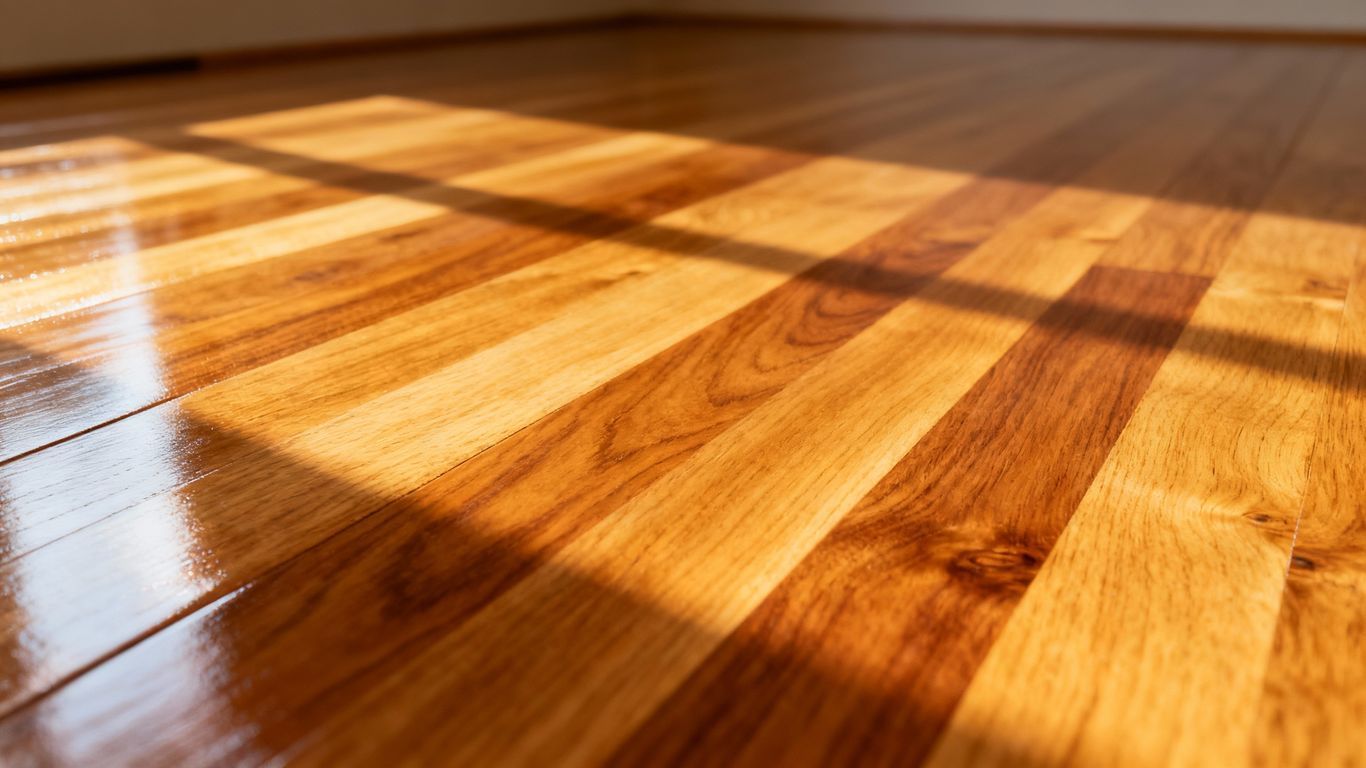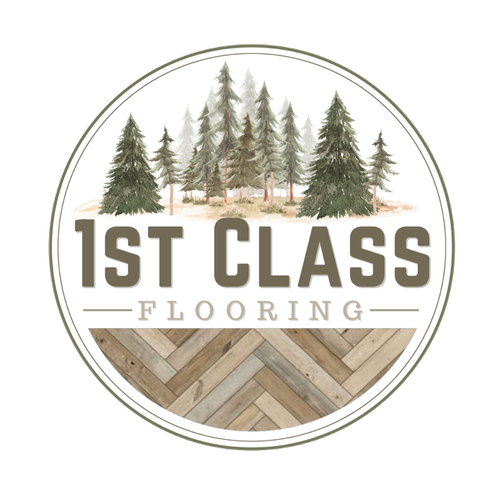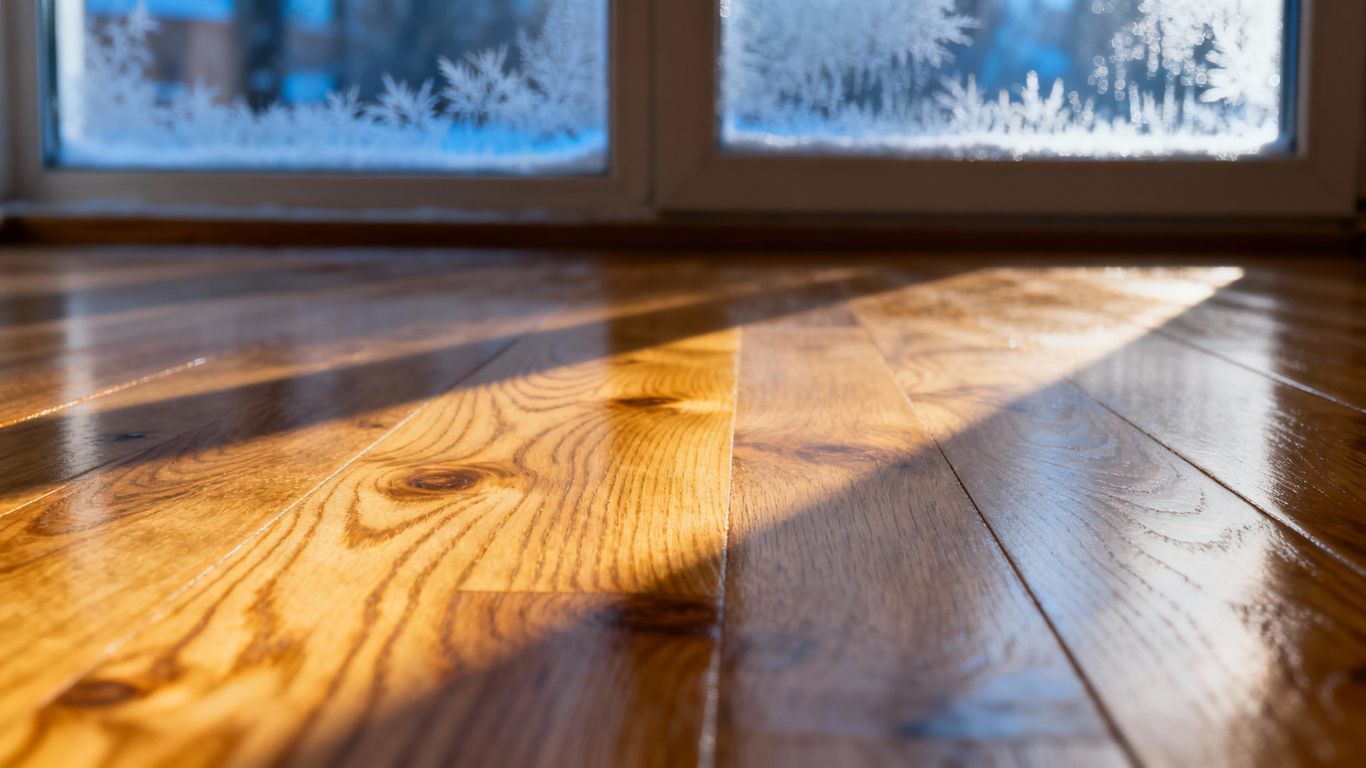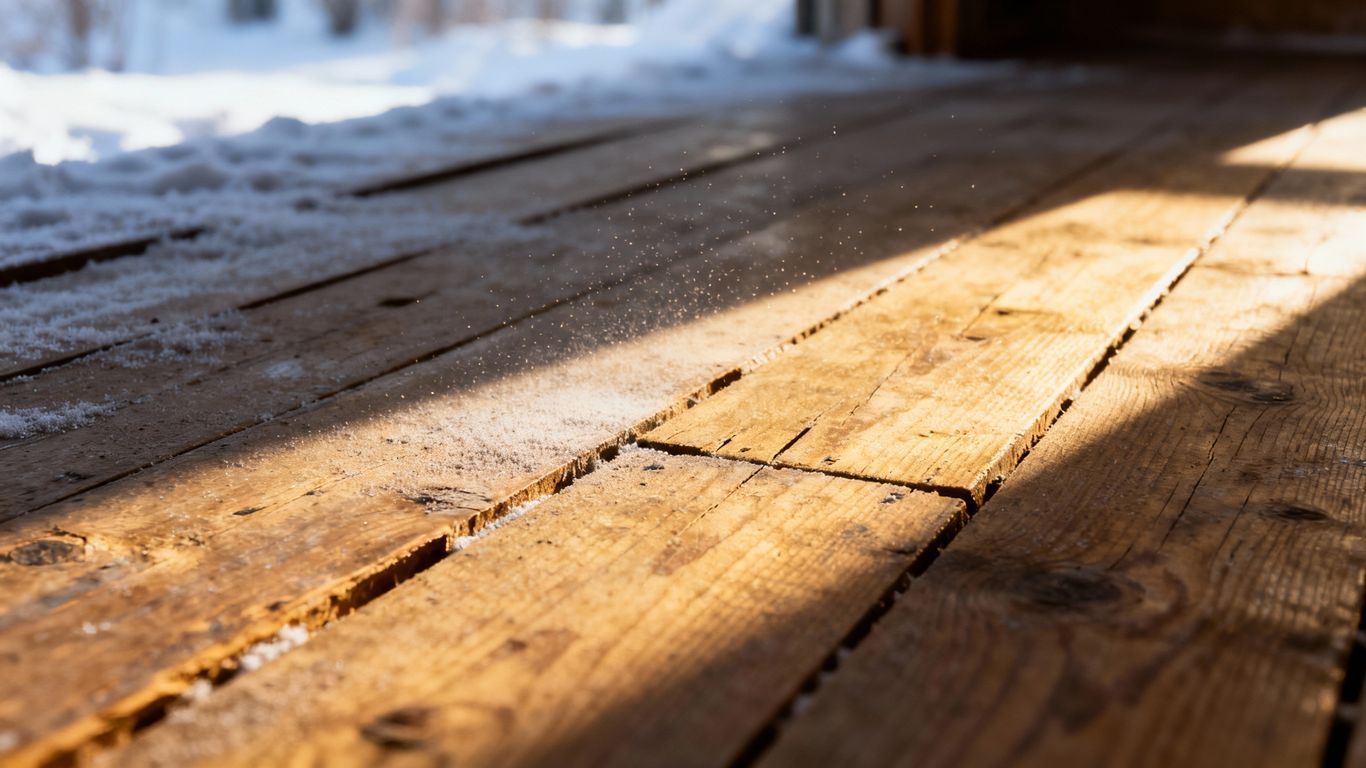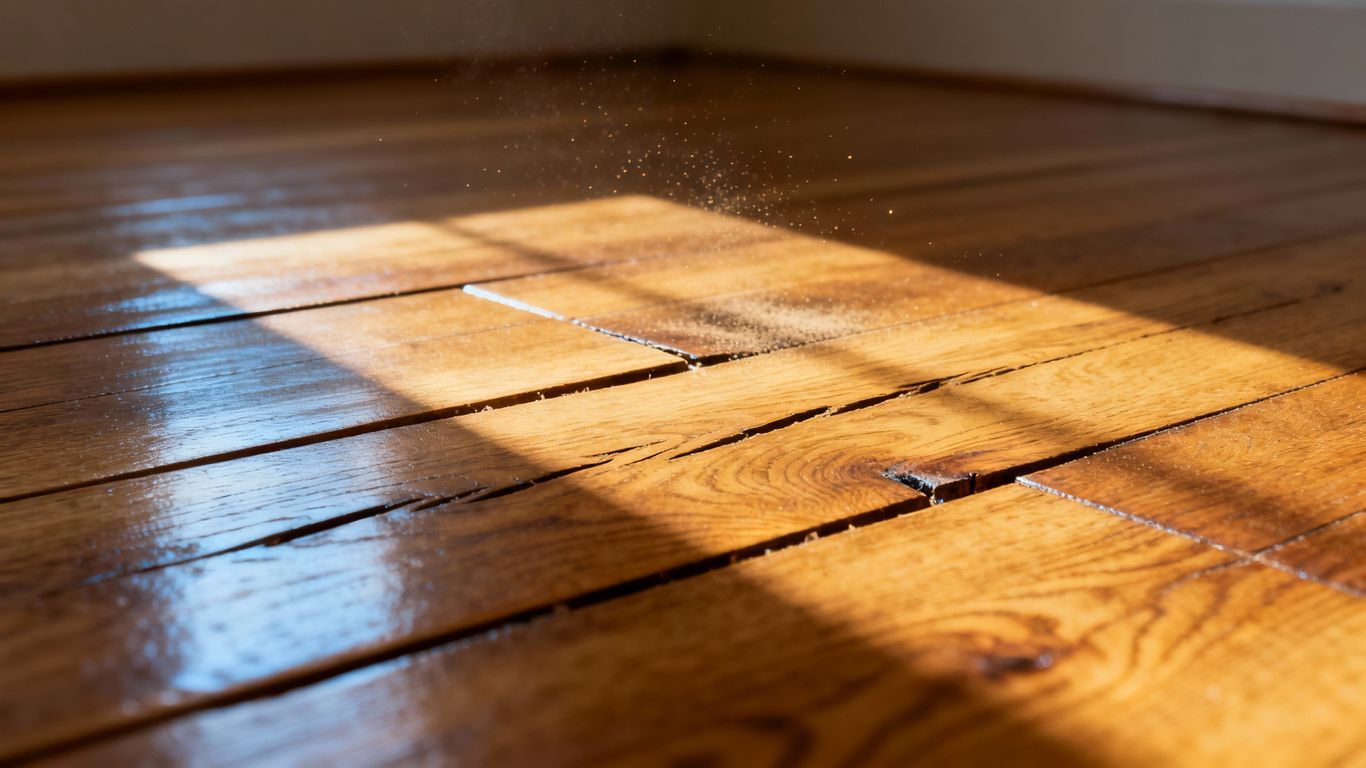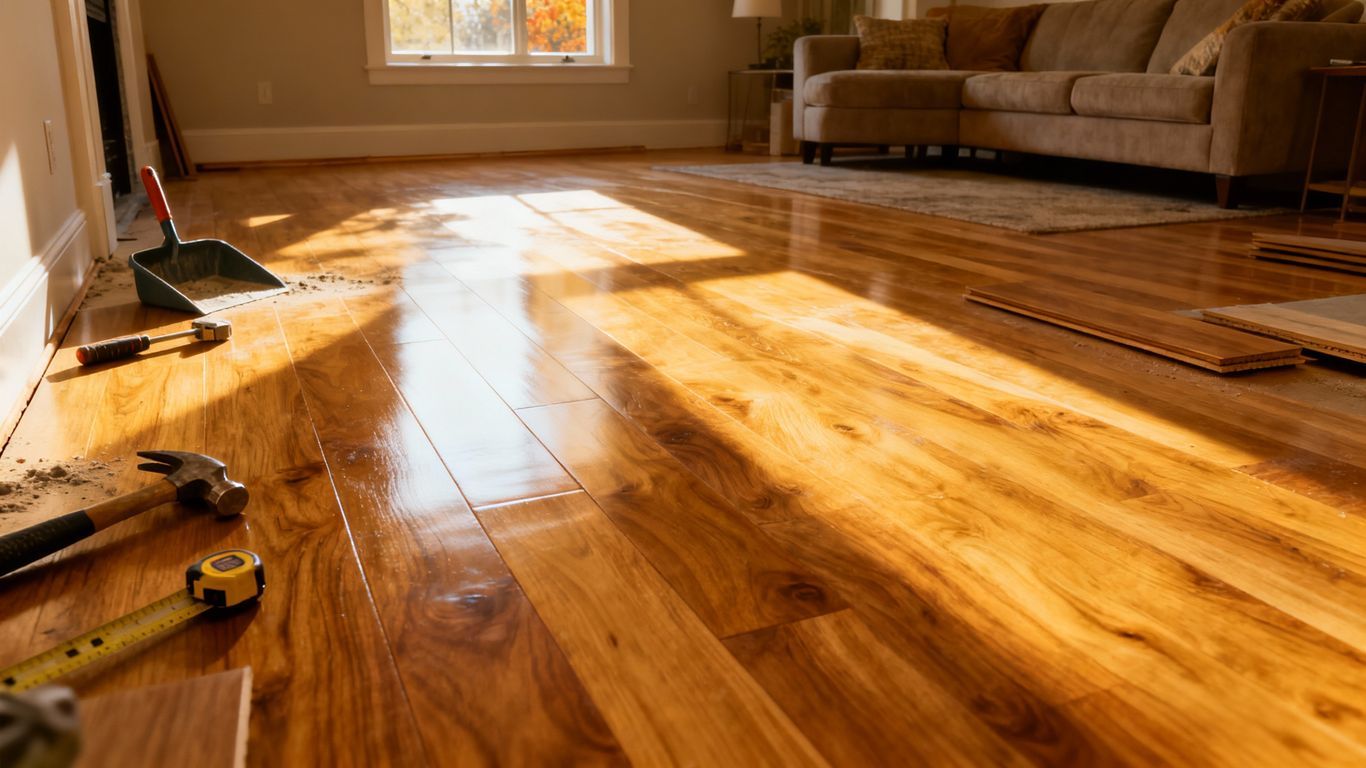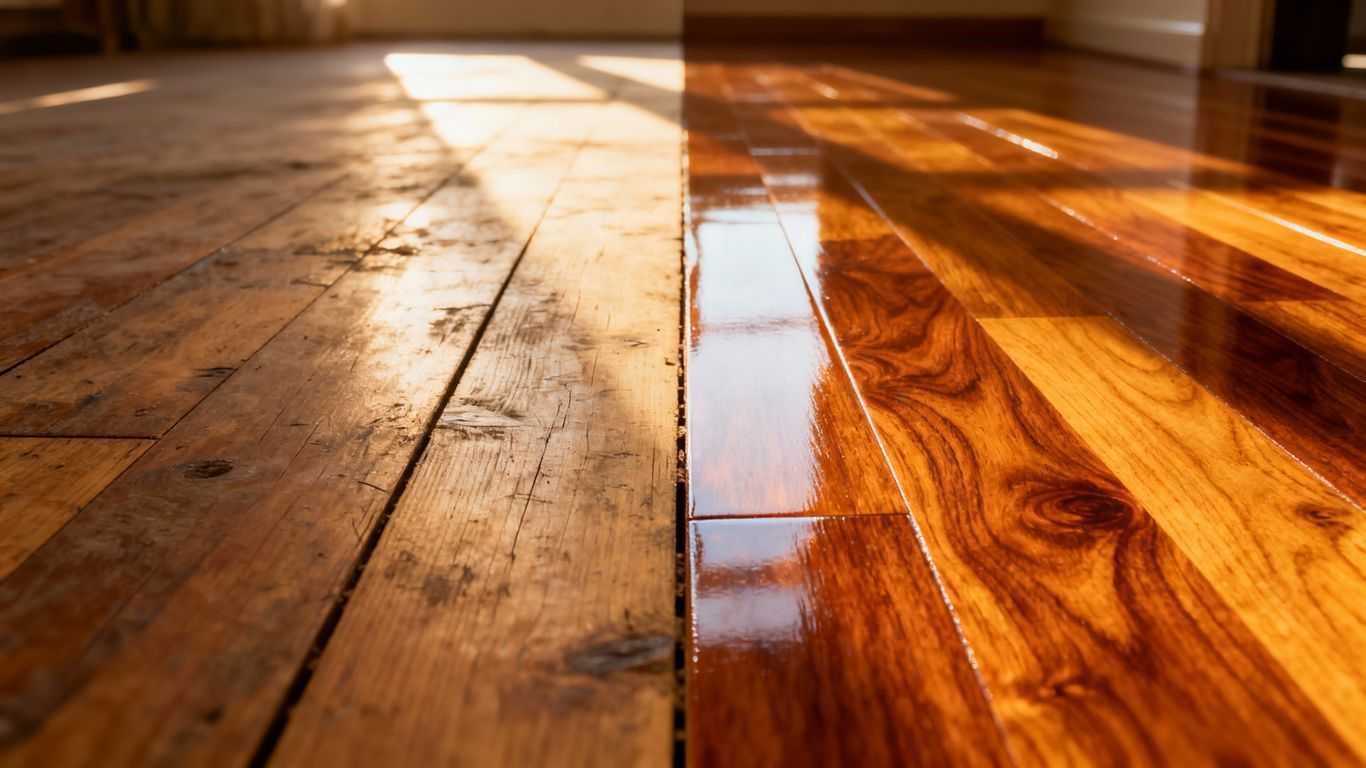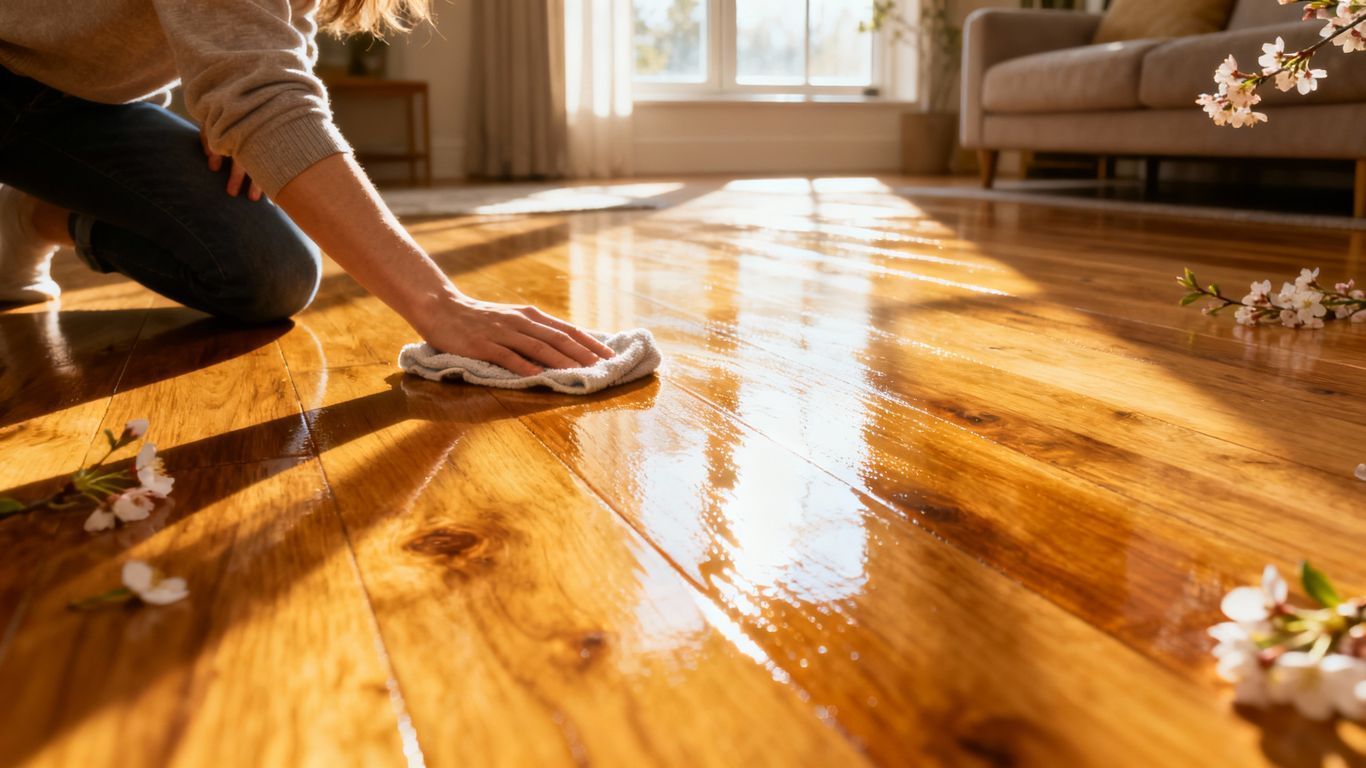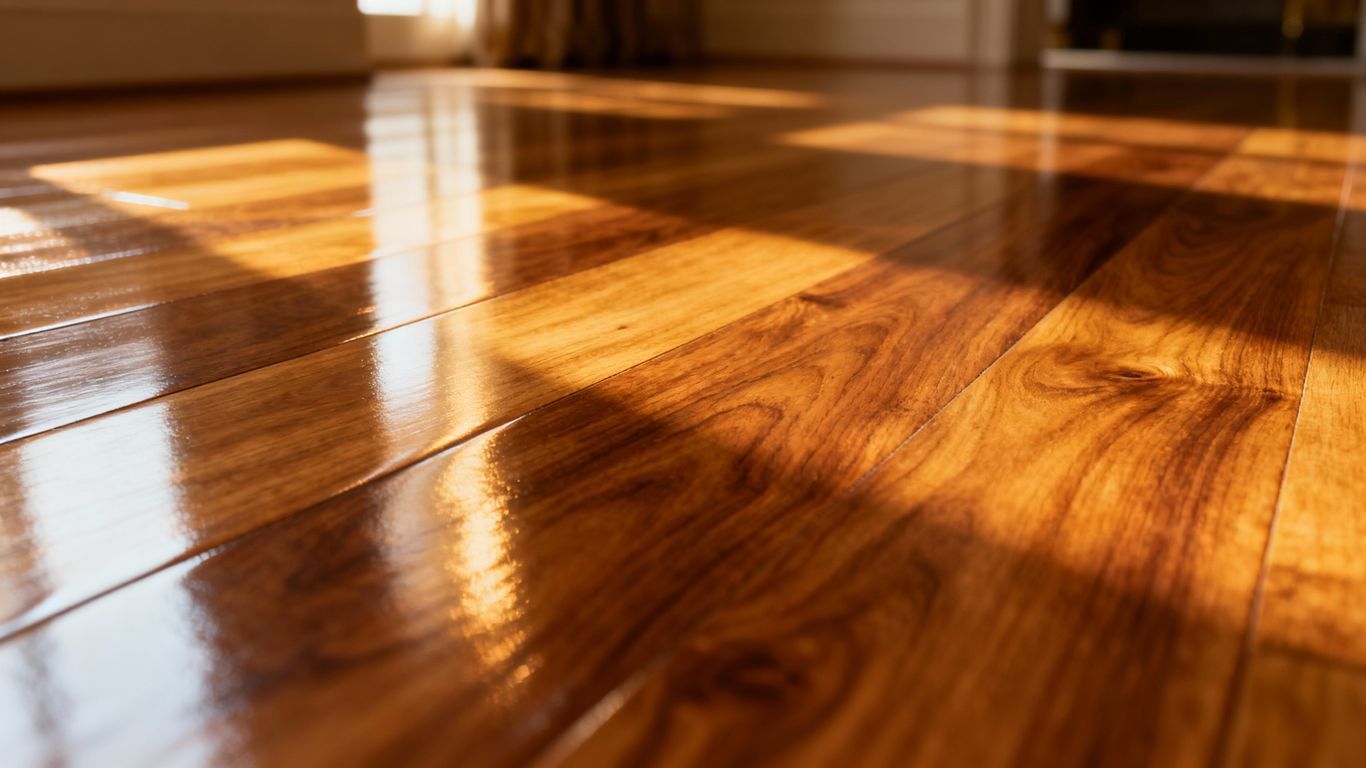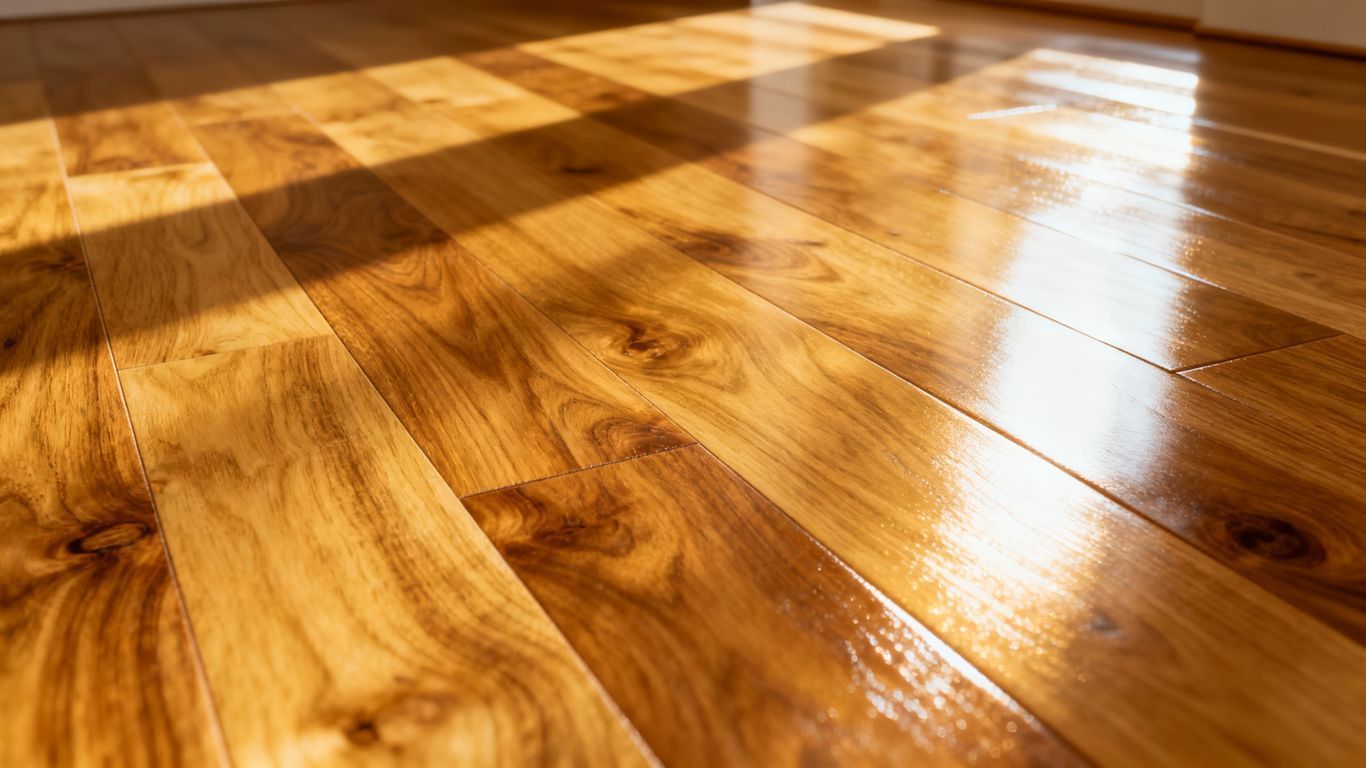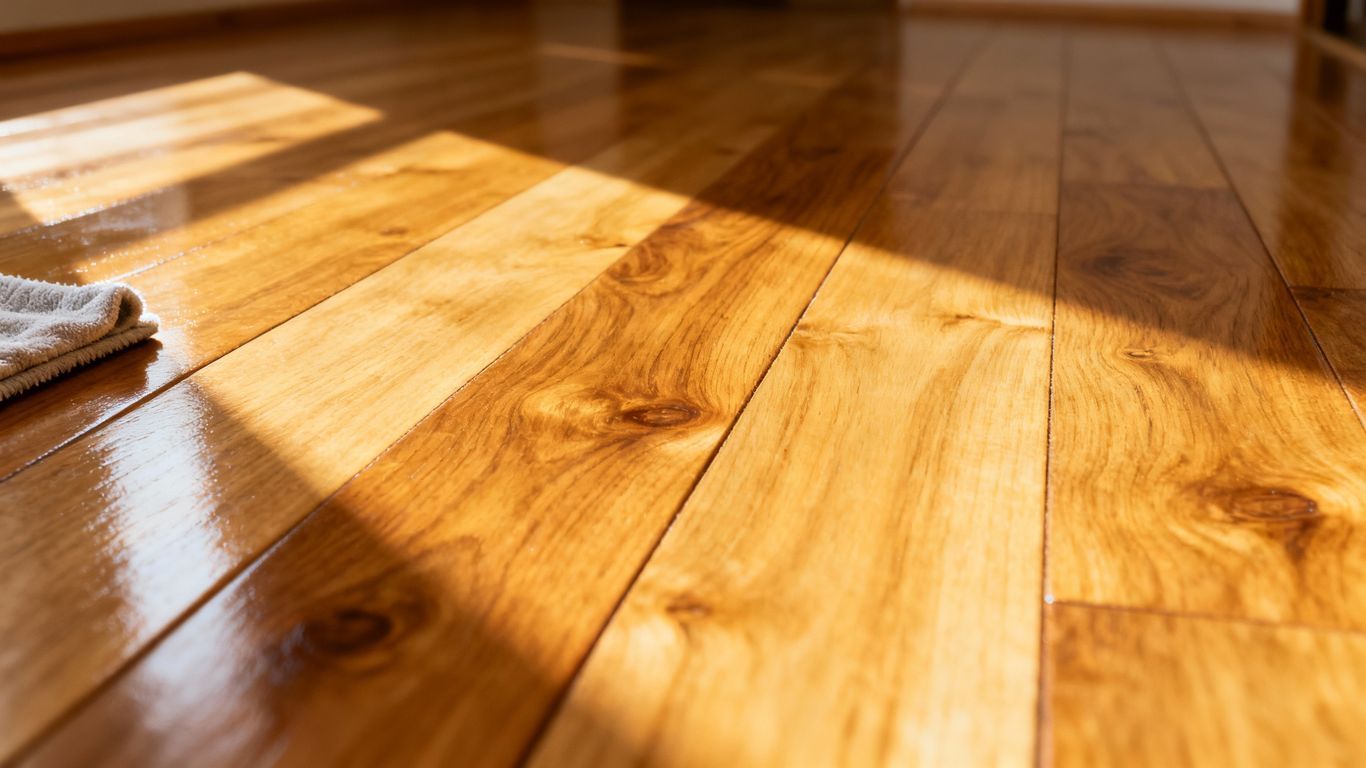Installing New Hardwood in Fall? What Homeowners in LaFayette, Dalton & Chattanooga Should Know
Thinking about putting in new hardwood floors this fall in LaFayette, Dalton, or Chattanooga? You’re not alone. Fall is a popular time for home projects, especially when it comes to flooring. The weather is cooler, and schedules often slow down a bit after summer. If you’re wondering what to expect with hardwood floor installation LaFayette Dalton, here’s what you should know before you get started.
Key Takeaways
- Fall is a great time for hardwood floor installation LaFayette Dalton because of steady temperatures and less humidity.
- Engineered wood might be a better fit than solid wood for homes in this region due to changing weather.
- Make sure your subfloor is dry and in good shape before starting any installation.
- Ask local installers about possible fall discounts—they sometimes offer deals when business slows down.
- Keep your indoor air steady after installation to help your new floors last longer.
Choosing the Right Hardwood for LaFayette, Dalton, and Chattanooga Homes
Popular Hardwood Species for Local Climates
Hardwood floors aren’t just about looks—they have to put up with the heat and humidity we get around LaFayette, Dalton, and Chattanooga. Oak is a favorite because it’s durable and holds up against changing weather. Hickory does pretty well too, especially in busy homes. People also like maple for its lighter tone, and it resists dings and scratches.
The right species makes a difference long after installation day.
- Oak: Reliable, classic, and adapts well to most homes
- Hickory: Stands up to wear and tear, good for high-traffic areas
- Maple: Light color, less likely to show small marks
Consider how each wood fits with your home’s style and your family’s habits before making a final pick.
Solid vs. Engineered Wood: What Works Best
Solid hardwood is made from a single piece of lumber—classic and long-lasting, but it can warp with moisture swings. Engineered wood has a real-wood top over layers of plywood, which helps it stay stable when humidity jumps up and down. For our area, some homeowners like engineered best if their floors see a lot of moisture or if they want to try hardwood in basements or over concrete slabs.
- Solid hardwood: Good for above-ground rooms, can be sanded several times
- Engineered hardwood: Stays flatter in most homes, handles basement installs better
- Both types: Real wood on top, just built differently underneath
If you’re not sure which type works for your home, ask local installers—they’ve seen it all in our weather.
Eco-Friendly Flooring Options to Consider
Lately, more folks are thinking about the environment when they pick new floors. You can get hardwoods from forests that are replanted and managed well. Bamboo and cork are also popular—they grow back fast and don’t need much fuss. Plus, recycled and reclaimed wood boards can add some real character.
- Look for hardwood with FSC (Forest Stewardship Council) certification
- Bamboo: Grows quickly, pretty tough, and looks modern
- Reclaimed hardwood: Unique textures, good way to reuse old wood
Choosing green options often means you’re helping the planet and your home’s air quality at the same time.
Key Benefits of Fall Hardwood Floor Installation in LaFayette Dalton
Ideal Humidity and Temperature Conditions
Fall is pretty much the sweet spot if you want to get hardwood flooring installed. When the air isn’t sticky-hot and the humidity’s settled down, your wood planks won’t soak up too much moisture or dry out too fast. Stable indoor conditions help the boards acclimate, which means fewer headaches later like cupping or gapping.
- Consistent fall weather reduces stress on new wood floors
- Less risk of swelling from humid summer air
- Fewer cracks that can happen when it’s bone-dry in winter
Setting up your hardwood floors in fall can mean a smoother installation and fewer surprises down the road.
Minimized Expansion and Contraction Risks
It’s not a myth—hardwood floors move a little as seasons change. During autumn, though, the temperature swings aren’t so wild. If you install now, you cut down on the chance of the planks shifting once you turn the heat up for winter, or when summer storms roll in.
- Stable boards mean the finish looks better for longer
- Reduced creaking since the wood doesn’t need to keep readjusting
- You likely avoid gaps and buckling, keeping your space looking sharp
Possible Seasonal Discounts from Local Installers
Another overlooked perk? Fall is often a slower time for flooring crews. Some companies in LaFayette or Dalton will even offer specials this time of year, which can save you some serious cash. Sometimes you’ll snag a better quote, sometimes added extras like moisture barriers or upgraded underlayment are included.
- Lower project bids compared to peak summer
- Flexible schedules mean your job could start (and finish) sooner
- Extras or better materials may be offered as incentives
Thinking about flooring now isn’t just about timing, it’s also a smart move for your home’s comfort. For a glimpse at the beauty and character hardwood adds, check out how hardwood floors bring warmth and artistic elegance to everyday living spaces.
Preparing Your Home for Hardwood Floor Installation LaFayette Dalton
Getting your space ready for new hardwood floors isn’t rocket science, but if you skip these steps, you might end up regretting it once the installers show up. Here’s what you need to cover so the job goes smoothly from start to finish.
Clearing and Protecting Your Furniture
Most folks underestimate just how much needs to be moved when installing new hardwood. It’s not usually enough to just push furniture around the room—installers often need a completely clear area. When possible, plan to:
- Move all furniture and decor out of the work zone, even throw rugs or plants.
- Use padded blankets or sliders for heavier items so you don’t scratch your current floors or ding up the walls.
- Store valuables and electronics in another room to keep them safe from dust or damage.
Taking a day or two to get everything out of the way before installation saves hassle and could even speed up the whole process considerably.
Addressing Subfloor Moisture and Repairs
Before those new planks go down, your subfloor has to be in solid shape. Moisture is the enemy of wood, especially in places like LaFayette, Dalton, and Chattanooga where humidity can swing. Here’s what you’ll want to check:
- Schedule a moisture test for the subfloor, especially if you’ve had plumbing leaks or the house has a crawlspace.
- Look for squeaks, soft spots, or uneven surfaces—these should be fixed, or else your new floors could end up warped or noisy.
- Discuss any repair needs with your installer during the initial walkthrough so there aren’t any surprises. For tips on eco-friendly flooring and moisture control, visit expert Tennessee and Georgia flooring advice.
Steps for Smooth Delivery and Acclimation of Materials
Hardwood flooring needs time to get used to your home’s indoor conditions, or acclimate, before installation. This step helps reduce later gaps or warping. Here’s how you can prepare:
- Schedule your floor delivery a few days in advance so the wood sits inside your home—never in the garage or on the porch.
- Open up the boxes and spread out the planks in the rooms where they’ll be installed, allowing air to circulate all around.
- Keep your home at a steady temperature and humidity for at least 48 hours before and after installation.
If you prep your home with this extra effort, your new hardwood floor will last longer and look better—definitely worth it if you ask me.
Working with Professional Hardwood Installers in the Region
Hiring the right installer can make or break your hardwood flooring project. It's worth taking a little extra time to find someone with a good reputation—the results last for years, after all. Homeowners in LaFayette, Dalton, or Chattanooga will want to pay close attention to a few key steps when looking for a local hardwood pro.
Questions to Ask Before Hiring
Before you sign anything, gather details that matter. Try asking:
- What kind of hardwood flooring have you installed recently in this area?
- Are you comfortable working with both solid and engineered hardwood?
- How do you handle subfloor repairs and unexpected moisture issues?
- Can you walk me through the daily schedule of the project?
These questions set the tone for honest conversation and show the installer you care about the project, not just the price tag.
Verification of Credentials and Insurance
Do a quick background check—yes, it’s worth your time! Here’s a short checklist:
- State or local business license (it’s not overkill to ask; some don’t have it)
- General liability insurance and, ideally, workers’ comp
- Proof of recent training with the latest flooring technology
If a contractor dodges these questions, that’s usually a warning sign. Double-check before any work begins.
Understanding Local Reputation and Reviews
Word gets around here in North Georgia and Chattanooga—good or bad. Catch up with neighbors or browse online for reviews about your installer. Sometimes, the story you hear is more truthful than what’s in the brochure. Take a moment to look for folks who specifically mention things like project cleanliness, clear timelines, and responsiveness.
A reliable installer will always follow up on any concerns, even after the job is done, so you feel secure about your new floors.
If you’re feeling unsure, even after an interview, it pays to keep searching. Working with someone trusted, especially in smaller communities, means less stress in the long run—even if you have to invest a few extra days up front.
For DIYers looking to prep their own space ahead of installation, quick tips for securing and prepping your home for a big project can be a helpful read, especially before the crew arrives.
Maintaining Your New Hardwood Floors Through Seasonal Changes
Keeping your hardwood floors looking great all year in LaFayette, Dalton, and Chattanooga isn’t something you can set and forget. Seasonal changes bring shifts in temperature and humidity, so your maintenance routine should shift a bit too. Below are some tips that can help.
Setting the Right Indoor Climate
- Keep room temperature steady, ideally between 60°F and 80°F.
- Aim for a relative humidity between 35% and 55%.
- Consider a humidifier for dry winter months, and a dehumidifier in the summer when it’s muggy.
- Don’t let windows stay open for too long during high humidity spells.
Even a few days of too much moisture or dryness can cause wood to expand, contract, or even crack. It’s worth checking your home’s climate every week during big weather swings.
Cleaning and Protecting Floor Surfaces
- Sweep or use a microfiber mop multiple times a week to catch dust and grit.
- Stick with wood floor cleaner—skip harsh chemicals and steam mops.
- Add area rugs or mats by doors.
- Put felt pads under furniture legs before moving anything.
- Trim pets’ nails regularly.
During the summer, it’s smart to protect hardwood from sun damage and extra foot traffic, making it a good idea to use window treatments and area rugs where there’s a lot of sunlight.
Long-Term Care Tips for Lasting Beauty
- Refinish the floors every few years, or as soon as you spot heavy wear.
- Address small spills or stains immediately. Water sitting on the wood is never good.
- Schedule professional maintenance if boards start creaking, lifting, or showing deep scratches.
- Use furniture coasters or pads if you have heavy pieces.
- Rotate area rugs each season to avoid uneven fading.
Stick to these habits, and your hardwood floors should still look good even after you’ve put them through a few Georgia summers and Tennessee winters.
Addressing Common Concerns About Hardwood Floor Installation LaFayette Dalton
Managing Installation Dust and Disruption
Hardwood floor installation can get messy, and most folks wonder how much dust and chaos they should expect at home. Even with the best efforts, there will be some dust, especially during demolition or sanding.
- Ask your installer if they use dustless sanding systems—some local companies specialize in this.
- Seal off adjacent rooms with plastic sheeting to control the spread.
- Move pets and kids to quieter areas, since they won’t love the noise and foot traffic.
It's completely normal to feel a bit overwhelmed by the activity, but a good installer will guide you through each step and keep things tidy as possible.
How Long the Process Typically Takes
Timing always seems to be on everyone’s mind. Most standard hardwood jobs in a typical LaFayette or Dalton house can take anywhere from a couple days up to a week, depending on:
- Room size and number of rooms you’re updating.
- Whether old flooring needs extra work or the subfloor needs repair.
- Custom patterns or tricky layouts, which add time.
Communication with your installer is key—ask for daily updates so there are no surprises.
What to Do If You Encounter Flooring Issues
Problems do pop up now and then. Boards might squeak, or you notice a gap after everything settles. Here’s what you can do:
- Take note of any new issues right away. Snap photos if you can.
- Reach out to your local flooring installer—you want someone who doesn’t disappear after the job's done. Companies like 1st Class Flooring have repair services just for situations like this.
- Review your warranty so you know what’s covered if problems linger.
Nobody wants to deal with hiccups after a new floor, but staying calm and bringing them up early usually leads to a quick fix.
Many people worry about the mess and time it takes to install hardwood floors. We want you to know that our team keeps your home clean and works quickly to finish the job. If you have more questions or want to get started, check out our website for details. Let’s help make your floors beautiful and strong!
Wrapping Up: Is Fall the Right Time for Hardwood?
So, if you’re thinking about putting in new hardwood floors this fall in LaFayette, Dalton, or Chattanooga, you’re not alone. The cooler weather can make the job a bit easier, and you won’t have to worry as much about humidity messing things up. Just remember to let the wood adjust to your home before installation, and don’t skip the prep work. If you’re not sure about something, it’s always okay to ask a pro for help. At the end of the day, new hardwood can really change the feel of your home, and fall is a pretty good time to get started. Good luck with your project!
Frequently Asked Questions
Why is fall a good time to install hardwood floors in LaFayette, Dalton, and Chattanooga?
Fall usually has mild temperatures and steady humidity, which helps the wood settle better. This means your new floors are less likely to warp or gap after they're installed.
What’s the difference between solid and engineered hardwood flooring?
Solid hardwood is made from one piece of wood, while engineered hardwood has several layers with a real wood top. Engineered wood handles changes in temperature and moisture better, making it a good pick for homes in our area.
How do I get my home ready for new hardwood floors?
You should move furniture out of the rooms, cover anything you don’t want to get dusty, and make sure the floor underneath is dry and in good shape. Your installer can help check the subfloor and tell you what else needs to be done.
How long does it take to install hardwood flooring?
Most jobs take a few days, but it depends on how big the area is and if the old flooring needs to be removed. Sometimes, the wood needs extra time to get used to your home before it’s installed.
What should I ask before hiring a hardwood floor installer?
Ask if they are licensed and insured, how much experience they have, and if they can show reviews from local customers. It’s also smart to ask about their process and how they handle any problems that might come up.
How do I take care of my new hardwood floors?
Keep your floors clean by sweeping or vacuuming often. Use a damp mop for spills, but don’t let water sit on the wood. Try to keep your home at a steady temperature and humidity to help the wood last longer.
